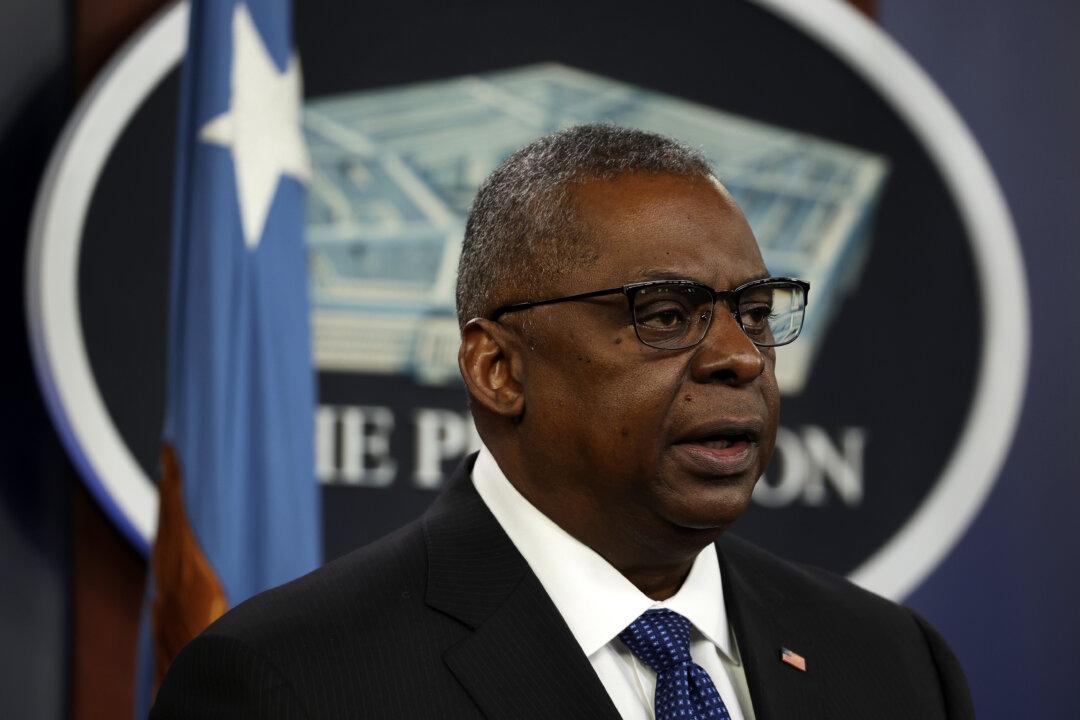Most members of the U.S. armed forces who have seen their applications for religious exemptions from the military’s COVID-19 vaccine mandate denied were deemed by a chaplain to have a “sincere belief,” which may lead a federal judge to block the mandate for them.
Most Troops Seeking Religious Exemption to Vaccine Mandate Have ‘Sincere Belief,’ but Rejected Anyway

Secretary of Defense Lloyd Austin speaks during a news briefing in Washington on Jan. 28, 2022. Alex Wong/Getty Images

Zachary Stieber
Senior Reporter
|Updated:



